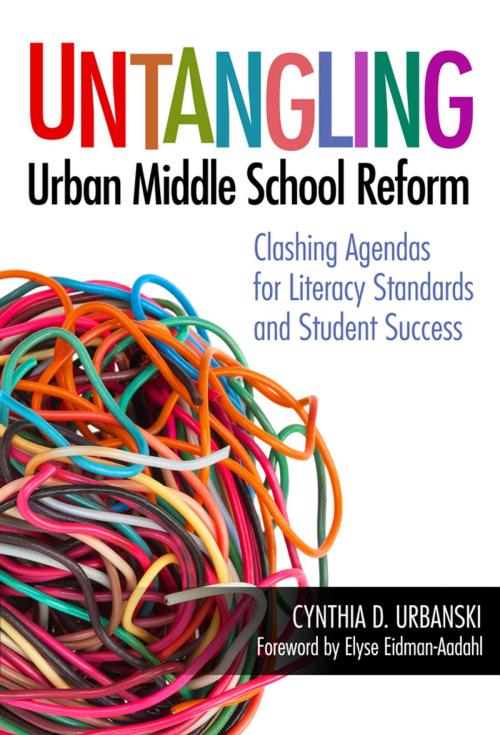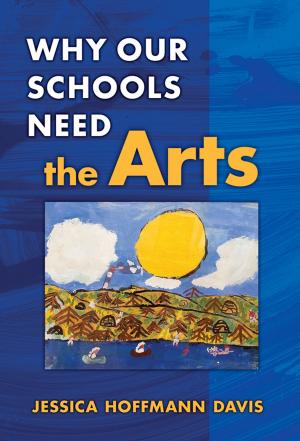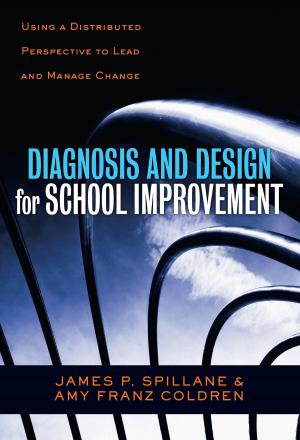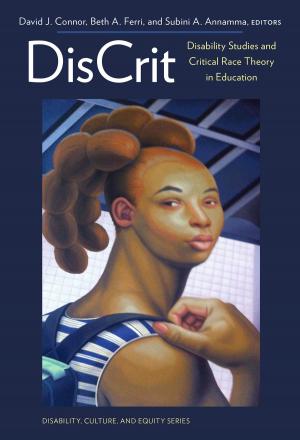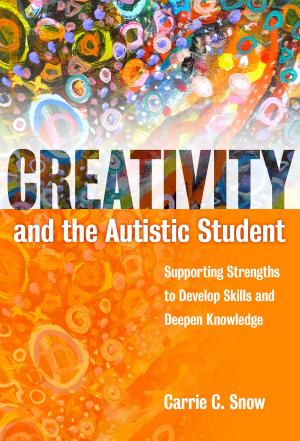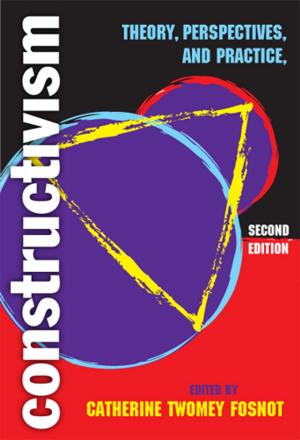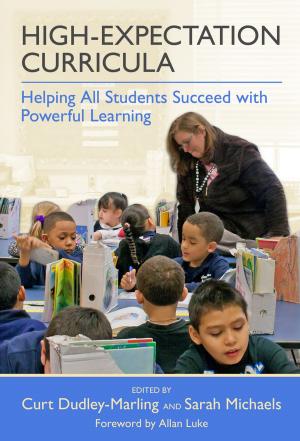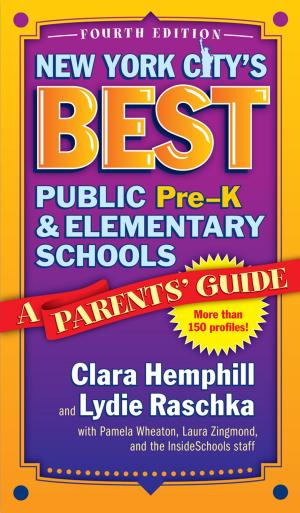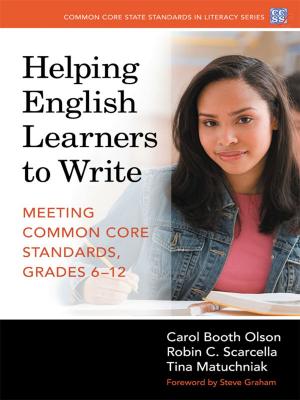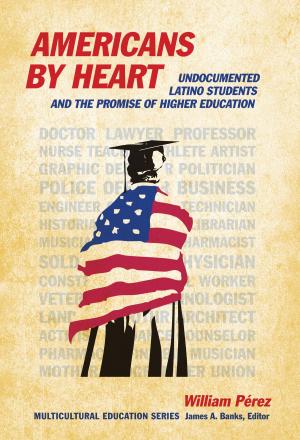Untangling Urban Middle School Reform
Clashing Agendas for Literacy Standards and Student Success
Nonfiction, Reference & Language, Language Arts, Literacy, Education & Teaching| Author: | Cynthia D. Urbanski | ISBN: | 9780807774823 |
| Publisher: | Teachers College Press | Publication: | December 15, 2009 |
| Imprint: | Language: | English |
| Author: | Cynthia D. Urbanski |
| ISBN: | 9780807774823 |
| Publisher: | Teachers College Press |
| Publication: | December 15, 2009 |
| Imprint: | |
| Language: | English |
At Rosa Parks, a middle school in a crime-ridden neighborhood, students are advised to “do as they are told” and they will succeed. Unfortunately, “doing what they are told” often translates into repeating information given to them by the teacher, especially when it comes to writing. Meanwhile, students in an affluent neighborhood nearby are encouraged to be creative and think critically. This book examines the experience of one school’s resistance to the deficit model of education and how it represents the overall story of urban school reform. Highlighting the consequences of the implementation of the Common Core State Standards in literacy, the author weighs the perspectives of teachers, National Writing Project consultants, and administrators. Her up-close analysis illuminates how rigid accountability structures shift power away from the teachers and administrators who know the students best. As such, it illustrates the complex nature of writing instruction in urban schools.
Book Features:
- Provides valuable lessons learned that can be applied throughout the United States to improve urban schools.
- Offers rich portraits of students and teachers who resist the deficit identities placed on them by the dominant narrative of urban school reform.
- Presents a forum for those who are often silenced and talked about where they can speak for themselves.
“This is a story of life at Rosa Parks Middle School as teachers, administrators, and consultants take up a school improvement project, but it is also the story of life in an urban middle school under No Child Left Behind (NCLB) and its larger operational context of generalized, bureaucratized distrust.”
—From the Foreword by Elyse Eidman-Aadahl, executive director, National Writing Project
“Teachers and administrators who are trying to untangle new college- and career-ready standards and district curricular and assessment requirements, which is to say almost everyone in education, will find this book extremely useful.”
—Tom Fox, California State University
“This important and timely book is a valuable contribution to the field of education. It provides a critical view of the effects of current educational reform on teachers and students working in an ethnically and linguistically diverse urban middle school.”
—Jessica Early, Arizona State University
At Rosa Parks, a middle school in a crime-ridden neighborhood, students are advised to “do as they are told” and they will succeed. Unfortunately, “doing what they are told” often translates into repeating information given to them by the teacher, especially when it comes to writing. Meanwhile, students in an affluent neighborhood nearby are encouraged to be creative and think critically. This book examines the experience of one school’s resistance to the deficit model of education and how it represents the overall story of urban school reform. Highlighting the consequences of the implementation of the Common Core State Standards in literacy, the author weighs the perspectives of teachers, National Writing Project consultants, and administrators. Her up-close analysis illuminates how rigid accountability structures shift power away from the teachers and administrators who know the students best. As such, it illustrates the complex nature of writing instruction in urban schools.
Book Features:
- Provides valuable lessons learned that can be applied throughout the United States to improve urban schools.
- Offers rich portraits of students and teachers who resist the deficit identities placed on them by the dominant narrative of urban school reform.
- Presents a forum for those who are often silenced and talked about where they can speak for themselves.
“This is a story of life at Rosa Parks Middle School as teachers, administrators, and consultants take up a school improvement project, but it is also the story of life in an urban middle school under No Child Left Behind (NCLB) and its larger operational context of generalized, bureaucratized distrust.”
—From the Foreword by Elyse Eidman-Aadahl, executive director, National Writing Project
“Teachers and administrators who are trying to untangle new college- and career-ready standards and district curricular and assessment requirements, which is to say almost everyone in education, will find this book extremely useful.”
—Tom Fox, California State University
“This important and timely book is a valuable contribution to the field of education. It provides a critical view of the effects of current educational reform on teachers and students working in an ethnically and linguistically diverse urban middle school.”
—Jessica Early, Arizona State University
